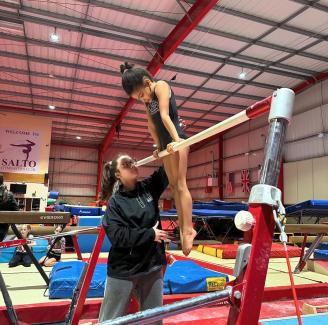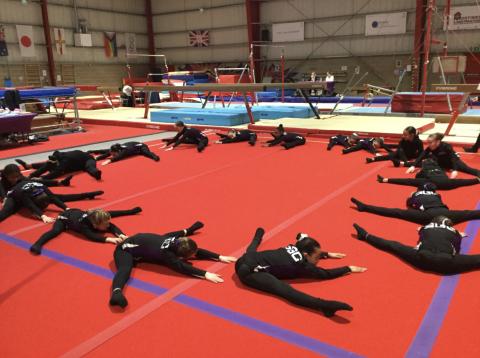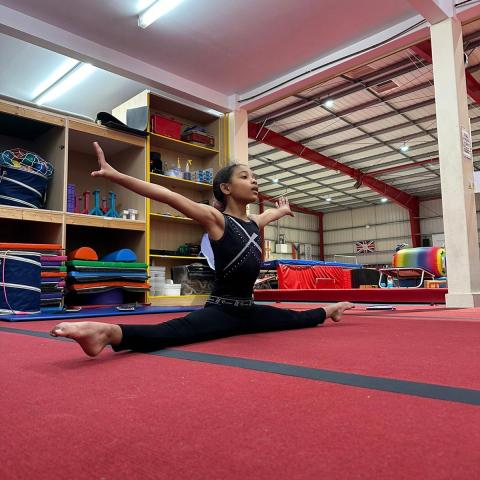Womens Artistic Gymnastics
Meet our Women's Artistic Department
|
Image

|
Image

|
Image

|
Here at SALTO we have a fantastic Women's Artistic Department. Our Women's Artistic groups compete in friendly, county and regional competitions. At SALTO In Women's Artistic we call our squad groups after precious gems! Our squads train various hours from 4 hours per week - 13 Hours Per Week
- WAG Development - Lara
- WAG Foundation - Sophie and Hollie
Check out all of our latest competitions/news by clicking here!
-
Popularised in the 70’s by elfin-like stars such as Olga Korbut and Nadia Comaneci, Women’s Artistic Gymnastics remains one of biggest crowd pleasers and most watched sports at the Olympic games.
It’s fascination and popularity amongst girls of all ages lies in it’s ability to provide constant challenge and teach body control, coordination, amplitude and courage.
It was the sport of choice for the UK’s most decorated gymnast, Beth Tweddle, who began the sport at an early age yet continues to thrill audiences the world over, with her ability to innovate and prove that age is no barrier to participation and success.
Women’s Artistic Gymnastics is the sport of choice for girls who love turning their world upside down, in more ways than one:-
Vault (VT)
Following apparatus innovation in early 2001, the vaulting horse has now been replaced with a wider vaulting table. It provides the perfect platform from which to launch sky high, before returning to earth with a controlled landing.Gymnasts approach the vault from a 25metre run, transfer their speed to the springboard and seek a quick hand placement to the table. From here the gymnast uses internal spring to launch themselves vertically for a combination of somersaults and twists. A good vault should land at least 2metres from the table and include no steps on landing
Uneven Bars (UB)
Like the men’s parallel bars the Uneven Bars provide double the challenge for gymnasts. The low bar is set around 170cm in height and the high bar often around 250cm. The distance between the two bars is set at a maximum of 180cm.
Swinging and continuous movements are required on this apparatus. Routines typically include movements in both directions as well as above and below the bars. Elements with twists and somersaults with multiple grip changes and high flight often are awarded with the highest scores. Like men’s horizontal bar, the wind up and dismount is often the most exciting part of the routine.
Balance Beam (BB)
Perhaps the most precarious piece of apparatus for girls, the beam stands 1.25metres from the floor, is five metres long and if that was not posing enough of a challenge, is only 10cm wide. That is the width of your average house brick!
A beam routine is an exercise in precision with no room for error. The gymnast performs a combination of acrobatic elements, leaps, jumps, turns, steps, waves and balance elements. These can be done standing, sitting or lying on the beam. It is a requirement that the gymnast uses the entire length of the beam, with routines concluding often with a series of acrobatic elements off the side or end of the beam.
Floor Exercise (FX)
The floor exercise allows the gymnast their moment in the spotlight and is considered by many to be the most expressive piece of women’s apparatus.
A floor routine, always accompanied by music, includes a combination of dance movements and sequences interspersed with a variety of tumbling and acrobatic elements. The whole floor area must be used in the routine with clear variances in mood, tempo and direction. Individuality, originality, and artistry of presentation are the key ingredients of a great routine.